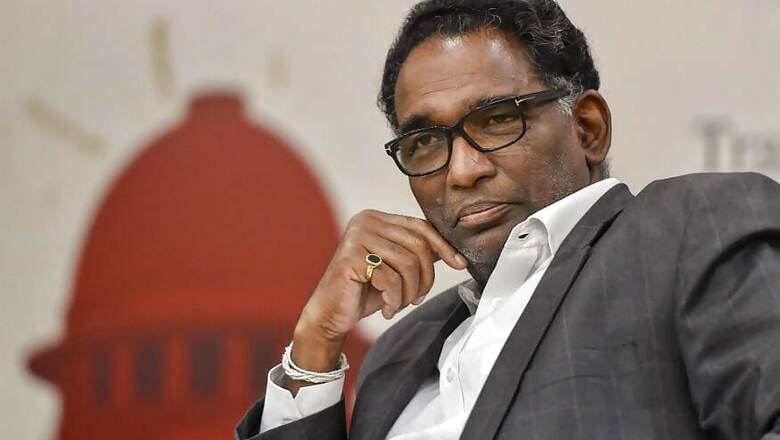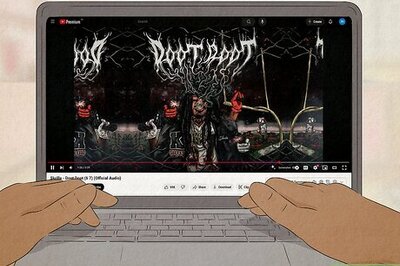
views
New Delhi: Outgoing Supreme Court judge J Chelameswar has said that distribution of cases in the Supreme Court requires “rationalisation" and a definite process for setting up the Constitution Benches.
According to him, judiciary, being an institution that preaches all other wings of the democracy, must put its house in order first as far as allocation of cases to various benches in the apex court is concerned.
Speaking to CNN-News18, Justice Chelameswar said that he, along with other three most senior judges of the Court, had raised the issue of contentious manner of distributing cases by the CJI because the system required a correction.
On the eve of his retirement, the judge was asked if he believes that administration of cases and the roster in the Supreme Court need further changes.
“It requires certain amount of rationalisation of the process. On what basis the cases are distributed? Is it by a pure lottery? Or is there a rational pattern in which cases are distributed? There has to be some process," he said.
Mincing no words, Justice Chelameswar asserted: “I believe a more rational process should be consistent with the constitutional norms which this court has been preaching to all other organs of the State."
He also answered in affirmative when asked if the roster, recently issued on the Court website, is a half-baked document and that it does not talk about how the composition of the Constitution Benches will be decided.
Justice Chelameswar also acknowledged that there are certain judges who are hearing a dozen Constitution Bench case while there are some other judges who never get the opportunity at all. “Yes…yes" he answered when asked if this is also a specific area that needs to be addressed.
Talking about the ‘master of roster’ principle, Justice Chelameswar said that he had never disputed this proposition but the press conference cited problems in the manner in which this principle was being executed.
Asked if the ‘master of roster’ principle, that gives power to the CJI to decide which bench should hear which cases, is working to the detriment of the judiciary, the outgoing judge replied that it is about how this power is exercised.
“In a particular instance and at a particular time that principle might have worked to the detriment of the institution’s integrity and credibility. But the principle itself was never questioned. Nobody ever disputed the proposition that chief justice is the master of roster. Somebody will have to organize the institution. Well it is the chief justice and nobody is questioning that. The question is how is that power exercised? That was the question we raised (in the press conference)", he said.
Justice Chelameswar was then asked if the four most senior judge raised questions because of the manner in which incumbent CJI Dipak Misra was exercising this power.
After taking a long pause, he responded: “I don’t want to get into the individual’s issues. I only raised certain larger questions about the system. Individuals are not very relevant to the context. I have retired. All my three colleagues who sat with me in the press conference will also retire sometime sooner or later. Equally the CJI will retire. Nobody is permanent here. The question is about the system. That’s what we were talking about that day."
In the historic January 12 press conference, Justices Chelameswar, Ranjan Gogoi, Madan B Lokur and Kurian Jospeh had questioned the pattern in which various important and politically sensitive cases had been allocated by the CJI to some select benches.
Following this, for the first time, the CJI made the roster of cases public on the Supreme Court website. However, it presented no guidelines on how the Constitution Benches shall be set up, apart from the fact that CJI kept the roster to himself for hearing all important fresh PILs.
Justice Chelameswar or any of the other three judges who participated in the press conference were not included in any of the Constitution Benches, which is currently being presided over by CJI Dipak Misra and had several significant matters such as Aadhaar, homosexuality, polygamy, right of women to enter Sabrimala temple in Kerala, compensation in land acquisition cases, listed before them.


















Comments
0 comment